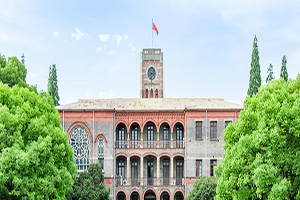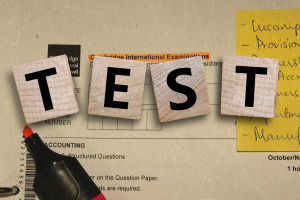环球卓越:2010年同等学力英语考点特训之阅读(三)
Late-night drinking
Coffee lovers beware. Having a quick “pick-me-up” cup of coffee late in the day will play havoc with your sleep. As well as being a stimulant, caffeine interrupts the flow of melatonin, the brain hormone that sends people into a sleep.
Melatonin levels normally start to rise about two hours before bedtime. Levels then peak between 2 a.m. and 4 a. m, before falling again. “It’s the neurohormone that controls our sleep and tells our body when to sleep and when to wake,” says Maurice Ohayon of the Stanford Sleep Epidemiklogy Research Center at Stanford University in California. But researchers in Israel have found that caffeinated coffee halves the body’s levels of this sleep hormone.
Lotan Shilo and a team at the Sapir Medical Center in Tel Aviv University found that six volunteers slept less well after a cup of caffeinated coffee than after drinking the same amount of decaf. On average, subjects slept 336 minutes per night after drinking caffeinated coffee, compared with 415 minutes after decaf. They also took half an hour to drop off---twice as long as usual---and jigged around in twice as much.
In the second phase of the experiment, the researchers woke the volunteers every three hours and asked them to give a urine sample. Shilo measured concentrations of abreakers were half those in decaf drinkers. The results suggest that melatonin concentrations in caffeine drinkers were half those in decaf drinkers. In a paper accepted for publication in Sleep Medicine, the researchers suggest that caffeine blocks production of the enzyme the drives melatonin production.
Because it can take many hours to eliminate caffeine from the body, Ohayon recommends that coffee lovers switch to decaf after lunch.
1. The author mentions “pick-me-up” to indicate that ______.
A. melatonin levels need to be raised.
B. Neurohormone can wake us up.
C. Coffee is stimulant.
D. Decaf is a caffeinated coffee.
2. Which of the following tells us how caffeine affects sleep?
A. Caffeine blocks production of the enzyme that stops melatonin production.
B. Caffeine interrupts the flow of sleep hormone.
C. Caffeine halves the body’s levels of sleep hormone.
D. Caffeine stays in the body for many hours.
3. What does paragraph 3 mainly discuss?
A. Different effects of caffeinated coffee and decaf on sleep.
B. Different findings of Lotan Shilo and a team about caffeine.
C. The fact that the subjects slept 415 minutes per night after drinking decaf.
D. The evidence that the subjects took half an hour to fall asleep.
4. What does the experiment mentioned in paragraph in paragraph 4 prove?
A. There are more enzymes in decaf drinkers’ urine sample.
B. There are more melatonin concentrations in caffeine drinkers' urine sample.
C. Decaf drinkers produce less melatonin.
D. Caffeine drinkers produce less sleep hormone.
5. The author of this passage probably agrees that ______.
A. coffee lovers sleep less than those who do not drink coffee.
B. We should not drink coffee after supper.
C. People sleep more soundly at midnight than at 3 a.m.
D. If we feel sleepy at night, we should go to bed immediately.
特别声明:①凡本网注明稿件来源为"原创"的,转载必须注明"稿件来源:育路网",违者将依法追究责任;
②部分稿件来源于网络,如有侵权,请联系我们沟通解决。
一站式择校服务!【免费领取】专业规划&择校方案

- 2025年三所知名院校同等学力申硕即将开课,还剩最后报名机会!抓紧!
2026年浙江工商大学、西南大学、上海对外经贸大学三所知名院校同等学力申硕即将开课,均剩最后报名机会。入学需提交材料审核,申硕要满足学位等条件,三校各有商科、师...
79赞0评论2025-09-19 11:14:46

- 2020同等学力申硕综合考试难吗?
同等学力申硕考试科目有综合和外语两门,关于这两门科目的考试难度,是同学们比较关心的。那么,我们来看看同等学力申硕综合
0赞0评论2020-04-28 09:03:18

- 2019同等学力经济综合考试考点、重点分析
同等学力考试马上就要开始了,同学们应该紧锣密鼓的开始同等学力申硕考试的学习。小编为大家整理了同等学力申硕经济重点考试
0赞0评论2019-04-19 10:54:37





















评论0
“无需登录,可直接评论...”